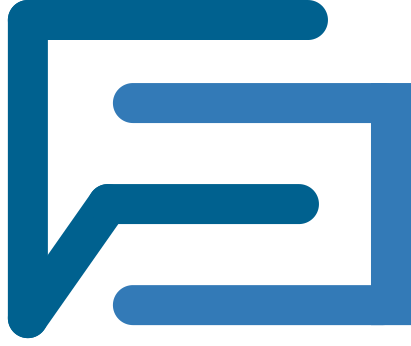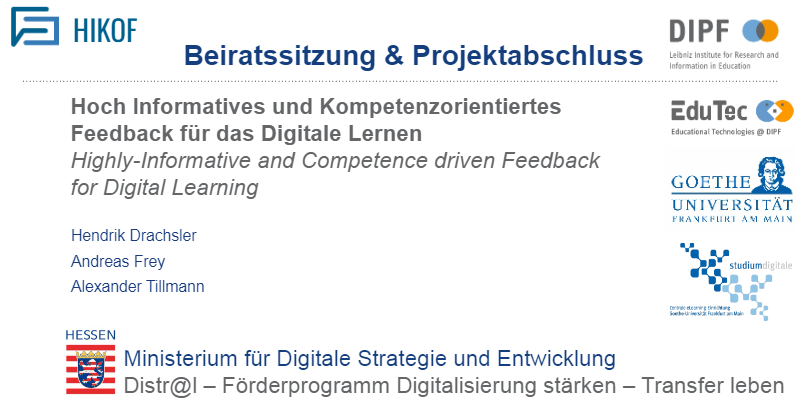On 13.5.24, HIKOF project members – Hendrik, Jane, Josh, Sebastian G. (DIPF), Andreas Frey, Aron Fink (GU Psychology), Tornike and Thorsten (GU Studiumdigitale) met members of the HIKOF-Beirat online to share final project results. The project has been running for the past three years from May 2021 and has officially ended in May 2024. In 2022, we completed our pilot study, and in 2023, our evaluation study with ca. 1000 students in a Teacher Education course at Goethe University, where we collected (with students’ consent) information relating to their motivation and emotions before and after they had completed their assignments. We constructed some machine learning models for automatically assessing the assignments in order to reduce lecturers’ workload. Finally, we provided highly-informative competence driven feedback to students and also collected their feedback on the feedback that was given to them.
Throughout the project duration and particularly in the last project phase, we developed and conducted altogether over 10 transfer workshops including 5 Beirat meetings to show participants in both university and industry settings, how they could use these techniques to give personalised, automated feedback relating to their courses to their learners or staff. The project team has given more than 20 presentations on the HIKOF project and its results findings at venues including international conferences, doctoral summer schools, eLearning Network Days at Goethe University StudiumDigitale.
Additionally, at least two journal publications have been published/accepted (more to follow) –
Gombert, S., Fink, A., Giorgashvili, T., Jivet, I., Di Mitri, D., Yau, J., Frey, A., & Drachsler, H. (2024) From the automated assessment of student essay content to highly informative feedback: a case study. International Journal of Artificial Intelligence in Education.
Weidlich, J., Fink, A., Jivet, I., Yau, J., Giorgashvili, T., Drachsler, D. & Frey, A. (Accepted for publication in 2024) Emotional and motivational effects of automated and personalized formative feedback: The role of reference frames. Special Issue on Learning Analytics for Formative Assessment. Journal of Computer-Assisted Learning.
In the last meeting on 13.5, the main results of the psychological aspects of providing feedback to university students were presented (Andreas Frey/Aron Fink), followed by how students perceived these feedback and whether it was useful for them (Josh), the automatic assessment of students’ text essays homework (Sebastian G.), and finally how concept maps can be effectively used in online teaching scenarios (Tornike & Thorsten). For more detailed information – please see the slides below:


